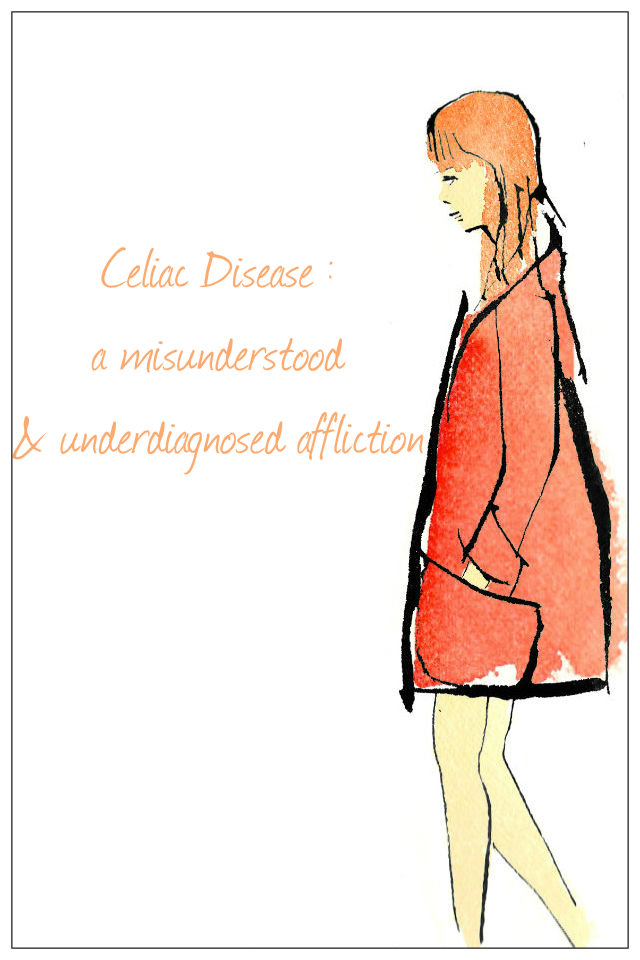
Celiac Disease a misunderstood and underdiagnosed affliction
My interview with Dr. Green focused on the role of nutrition, risk factors, and why Celiac and other autoimmune diseases seem to be more prevalent.
Katherine was never the typical teenager, as she did not lead a very typical life. In addition to being wise beyond her years, she was afforded an array of unique opportunities, as her mother was a well-known broadcasting personality and journalist. One of these included a trip across the world to attend the opening of Oprah’s School for Girls in South Africa. The trip an was an empowering experience.
When she returned from Africa, however, Katherine became seriously ill. Confined to her bed with this mysterious illness doctor’s couldn’t diagnose, she began to lose weight, strength and color, all the while consumed by the feeling that knives were twisting and turning inside her stomach. At long last, Katherine was finally diagnosed with the incurable Celiac disease.
When people with the disease eat gluten, the body mounts an immune response that attacks the small intestine and damages its lining, preventing the body from properly absorbing nutrients.
With autoimmune disorders like Celiac’s disease, one’s body mistakes its own cells for foreign invaders. When people with the disease eat gluten, the body mounts an immune response that attacks the small intestine and damages its lining, preventing the body from properly absorbing nutrients.
Celiac disease is one of the most common autoimmune disorders, estimated to affect 1 in 100 people worldwide (Celiac Disease Foundation). Left untreated, this disease leads to other serious health problems, including Type I diabetes, multiple sclerosis, anemia, epilepsy, and infertility.
Dr. Peter Green is Director of the Celiac Disease Center at Columbia University, a professor of clinical medicine at Columbia University’s medical school, attending physician at NY Presbyterian Hospital, and author of Celiac Disease: A Hidden Epidemic. He’s also one of the few physicians in the U.S. with an expertise in Celiac Disease.
My interview with Dr. Green focused on the role of nutrition, risk factors, and why Celiac and other autoimmune diseases seem to be more prevalent.
BWB: Is Celiac disease a hereditary or environmental disease?
You’re born with a genetic predisposition for the disease, however, environmental triggers include gluten rich diets, caesarian birth and penicillin.
It’s a very underdiagnosed disease in the U.S. In England, 70% of patients are diagnosed compared to 17% in U.S.
BWB: Is the higher incident rate merely the result of better diagnostic techniques, or an increased prevalence?
The prevalence of the disease has increased in the last 50 years. Environmental factors have also increased. But it’s a very underdiagnosed disease in the U.S. In England, 70% of patients are diagnosed compared to 17% in U.S.
BWB: How is the disease diagnosed?
By intestinal biopsy.
BWB: What triggered your interest in this disease?
I did all my medical education in Australia and specialized in diseases of the small intestine.
Gluten is hidden in many foods that people consume regularly, as well as household products like soy sauce, oats, frozen foods, beer, lipstick, and toothpaste.
BWB: Can you explain the disease and its impact on patients?
Celiac disease is an autoimmune disease. Some people can’t process certain foods, in this case, foods containing gluten. Gluten is hidden in many foods that people consume regularly, as well as household products like soy sauce, oats, frozen foods, beer, lipstick, and toothpaste. While the disease is manageable, mainly through adhering to a strict gluten-free diet, the disease severely restricts your lifestyle. In fact, the patients perceive the impact as harshly as someone on dialysis.
BWB: Can you comment on claims that the increasing prevalence of Celiac Disease is correlated with food additives, chemical pollutants in fertilizers, or genetically-modified foods?
That’s pseudoscience. There’s no evidence to support that it’s related to pesticides. There are no studies that prove these claims.
BWB: Is the food or pharmaceutical industry to blame for autoimmune disorders?
I don’t think the pharmaceutical industry is to blame here. The fact is there’s a widespread use of drugs and people are living longer.
BWB: Does Celiac disease ever go away or get cured?
It’s managed with diet – not necessarily cured.
We’re doing a lot of research and epidemiological clinical studies looking at gluten.
BWB: What types of promising research studies are going on? Is there hope of developing a possible cure?
We’re doing a lot of research and epidemiological clinical studies looking at gluten. Potentially, in the future, we should be able to recognize and identify environmental factors that contribute. We might also develop a pill.





